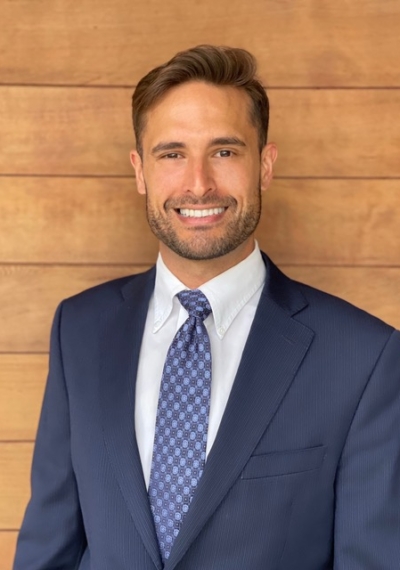Considerations for the Forensic Evaluation of the LGBTQ+-identified Person
By Dr. Paul Elizondo III, DO
fpamed Forensic Psychiatrist
Even in the bubble of the San Francisco Bay Area, youth and adults who identify as LGBTQ+ (Lesbian, Gay, Bisexual, Transgender, Queer or Questioning, and other sexual/gender identities) experience a wide variety of stress associated with their sexual and gender identity. In the United States, LGBTQ+ youth are frequently confronted with a dilemma:
Come out and:
- Deal with social stress and stigmatization
- Experience pressure to tailor behavior, speech, topics of discussion, and self-expression to portray oneself satisfactorily to unaccepting family members
- Feel obligated to constantly educate others, often in vain, about the experience of being a sexual and/or gender minority, and
- Witness emotional tension and a change in their relationships with several family members, some of whom may comprise their main support system
Or maintain discretion and:
- Experience stress associated with maintaining lies of omission to present an incompletely genuine identity
- Be tempted to feign romantic interest in the non-attracted sex to portray acceptability,
- Miss opportunities to learn about healthy romantic and sexual relationships as early as their non-minority peers.
Which would you have chosen, or did you choose, in that scenario? How did you or would you have decided when to risk rattling your support system? What would have been the cost of either route? Which unhealthy habits did you develop, or would have developed, to keep you feeling safe at home, at work, at school, and in your social circles? And which unhealthy habits would be more difficult to shake off and replace with healthier ones throughout your life?
These decisions, and the person’s specific life situation, have several developmental implications. The way one learns to behave in relationships, in school, in social situations, and with family members can translate into automatic habits throughout life. Unfortunately, many of these habits are unhealthy, especially when they are overused and influence the person’s approach to common life challenges. When an unhealthy approach to challenges becomes an enduring pattern, the person is more likely to experience mental health problems. These patterns and mental health problems can be relevant in the context of legal disputes. Therefore, the forensic evaluation of LGBTQ+-identified persons takes these developmental and potentially far-reaching consequences into account.
As a child, adolescent and forensic psychiatrist in the San Francisco Bay Area, I have had the opportunity to witness the gamut of stressors that more commonly affect LGBTQ+-identified youth and adults. My experience evaluating youth in residential treatment programs, which attract adolescents from many of the fifty states, has also exposed me to the variety of area-specific belief systems, anxieties, social expectations, and cultural influences that determine the nature of the stress on the youth. In the current era, youth who identify as trans are particularly vulnerable, as they have observed many states undergo changes to policies that affect access to gender-affirming healthcare for gender non-conforming youth. It can be disorienting for youth in this position to witness inconsistencies between state laws, cultural expectations, clinical recommendations, and parental understanding, and thereby lead to gender dysphoria and other mental health problems.
At the same time, parents of youth who identify as trans frequently experience real and legitimate concerns about their child’s desires to transition in conjunction with gender dysphoria. Parents may also exhibit concerns that are based on incomplete understanding of the gender dysphoria phenomenon and how it is treated. For example, parents may have concerns about a youth’s “choice” of sexual attraction, desire for gender-affirming hormones or surgery, their desire to undergo other irreversible life changes, and the permanent implications these interventions may have. It is also common for parents and relatives of LGBTQ+-identified youth to conflate sex (i.e., anatomy), gender expression (i.e., mannerisms, voice, diction, interests), gender identity (i.e., the brain’s reflexive response to the question about the person’s identified gender), and sexual or romantic orientation (i.e., to whom, in general, one is sexually or romantically attracted). To complicate the dynamic, the child undergoing such a self-discovery process may vacillate due to social influences, family pressure, or a natural and healthy experimentation with where they land on the spectrum (or “web”). Whereas this vacillation is frequently a normal part of the process, it can foster the perception that the adolescent is fickle, “not actually sure,” “can’t be trusted for what they say about their identity,” or “should not be allowed to make decisions about their lifestyle choices.”
The forensic interview and evaluation of an LGBTQ+-identified youth or adult must consider the potential presence of these common perceptions of the evaluee, which ultimately influences their behavior and experience in social, family relational, educational, and occupational domains of life. These factors frequently become determinants of a person’s mental health, resilience, ability to function in everyday life, and predisposition to mental disorders.
Please join us in honoring the LGBTQ+ community for the Pride Month of June 2023.
If you are an attorney, we’d love to schedule a free consultation for you with either our medical or assistant medical director. Complete our contact form, email us at email hidden; JavaScript is required or call us at 415-388-8040.

